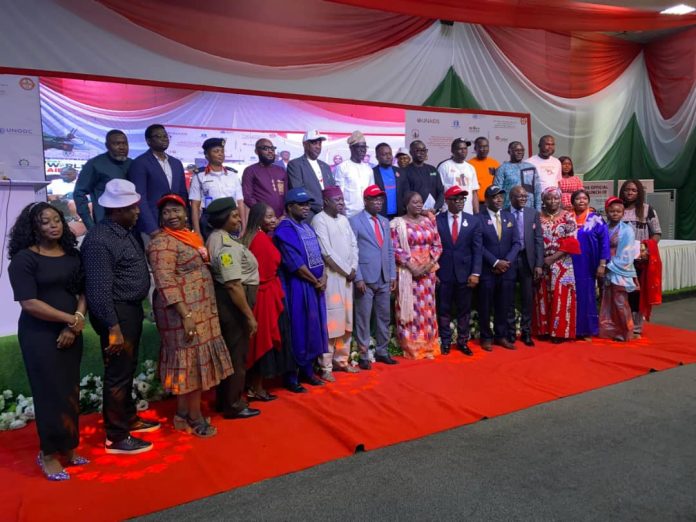The Federal Government has adopted a sector-wide strategy to integrate HIV response into national health priorities, aiming to enhance accountability and resource efficiency in the fight against HIV/AIDS.
This announcement was made by Dr. Iziaq Salako Adekunle, Minister of State for Health, during the 2024 World AIDS Day commemoration in Abuja, organized by the National Agency for the Control of AIDS (NACA). The event was themed: “Take the Right Path: Sustain the HIV Response and Stop HIV Among Children to End AIDS in Nigeria by 2030.”
Progress and Challenges
Dr. Salako highlighted Nigeria’s significant progress in reducing HIV prevalence from 3.4% to 1.4%, but noted that over 2 million people still live with HIV, requiring intensified interventions.
“Our strategy must address social, cultural, and economic barriers to healthcare services, particularly for women and children. With a unified sector-wide approach and collective action, ending AIDS by 2030 is achievable,” he said.
He called on state governments, private sector stakeholders, and community leaders to collaborate in preventing mother-to-child transmission and improving healthcare access for vulnerable groups.
Global Support and Rights-Based Approach
UN Resident Coordinator Mohamed Fall expressed optimism about achieving the goal of ending AIDS by 2030, but warned of persistent challenges.
“Every 25 seconds, someone is infected with HIV globally. The fight against AIDS can be won through a rights-based approach, ensuring everyone, especially vulnerable groups, accesses lifesaving services,” he said.
He stressed the need to eliminate discriminatory laws and practices that hinder HIV response efforts.
Innovations in HIV Response
Dr. Temitope Ilori, NACA’s Director General, detailed key milestones, including the launch of the PMTCT and Pediatric Acceleration Committee to eradicate mother-to-child transmission. She also announced initiatives for local production of antiretrovirals and other HIV-related commodities.
“Local production of active pharmaceutical ingredients will ensure sustainability and strengthen health security,” she said.
Dr. Ilori commended the renewed collaboration with donors and the publication of Nigeria’s HIV data by UNAIDS after three years, demonstrating transparency and evidence-based intervention.
Sustaining Momentum
The World AIDS Day event served as a rallying call for stakeholders to align efforts and leverage innovations to sustain progress. Dr. Salako emphasized that full government ownership and collective action remain key to achieving an AIDS-free generation by 2030.
This unified commitment aims to solidify Nigeria’s position as a leader in combating HIV/AIDS in sub-Saharan Africa.

